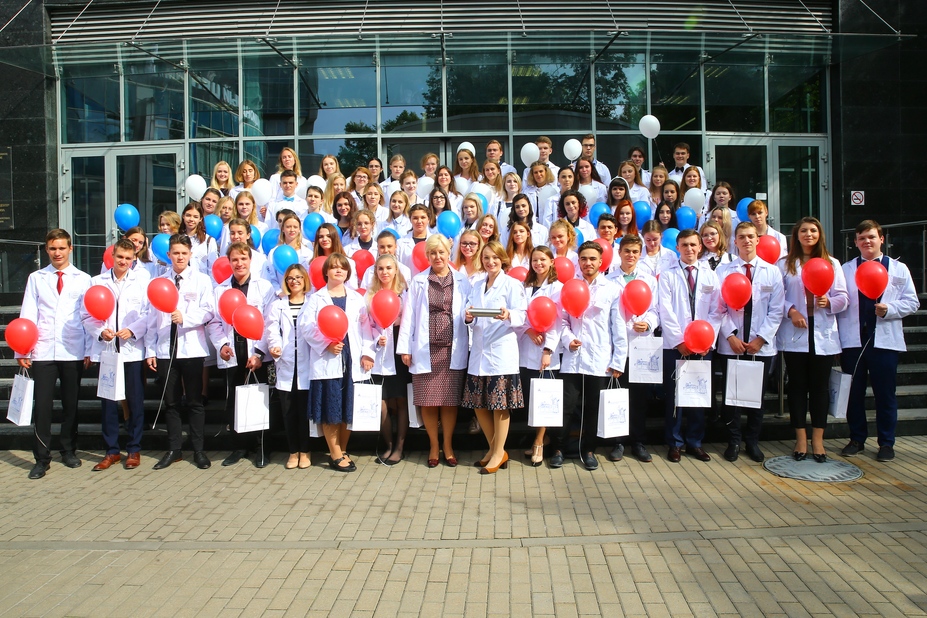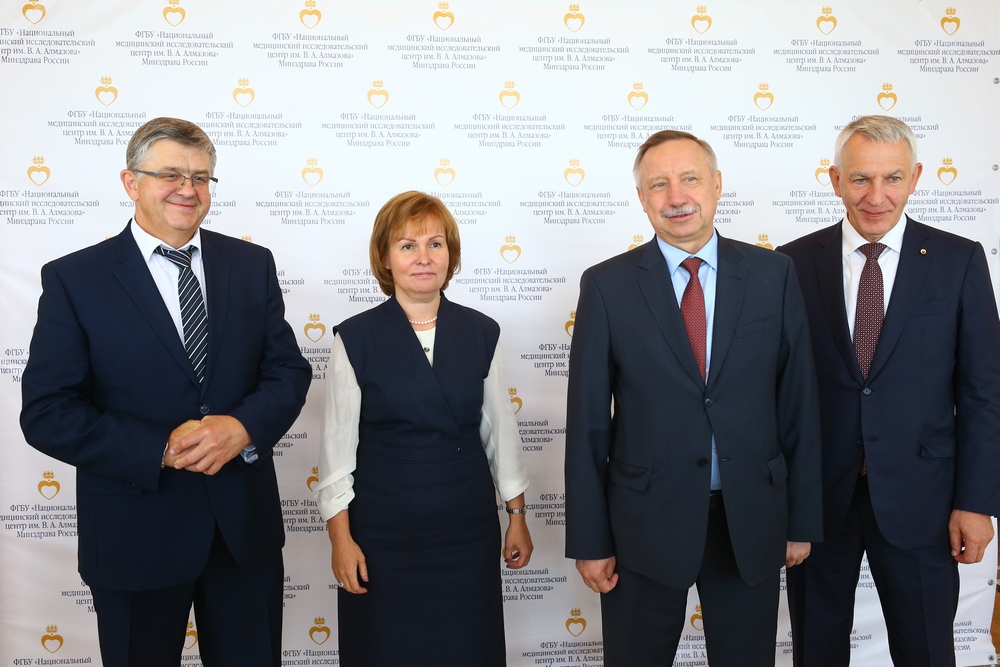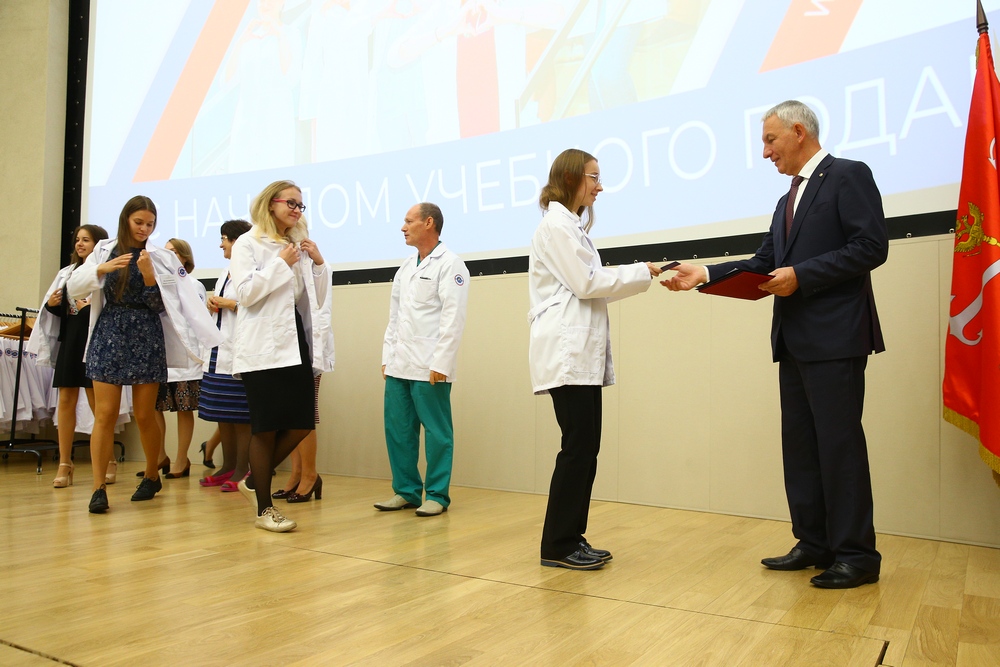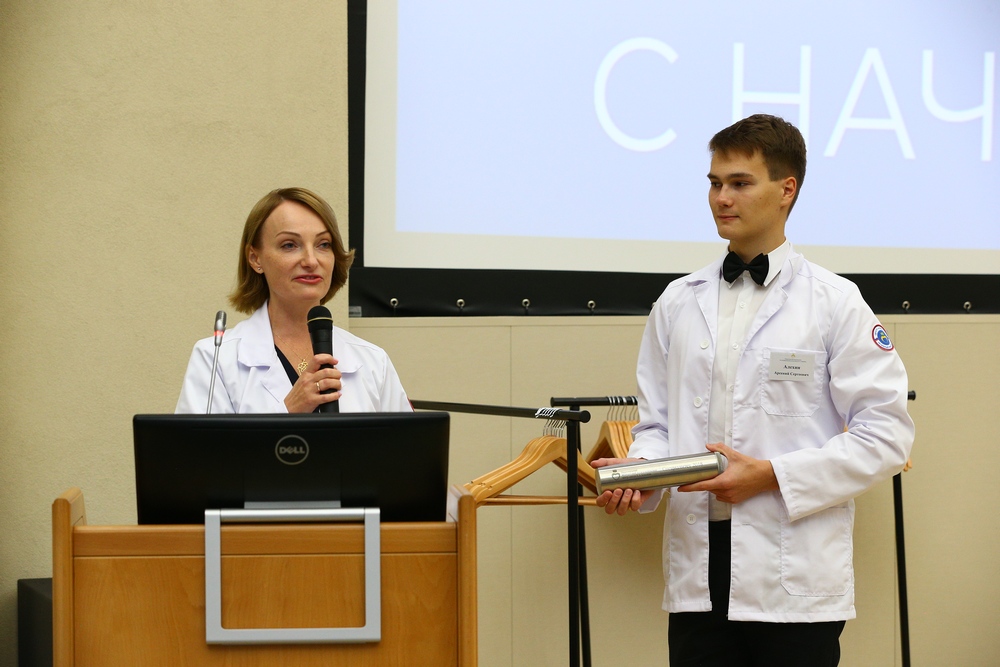
On September 1, the Almazov Centre welcomed its first students with a Matriculation ceremony to signify their acceptance into the higher education programme for specialist training in general medicine.
Valentina Matvienko, Chairwoman of the Russian Federation Council and of the Centre’s Board of Trustees sent a congratulatory letter to the ceremony highlighting the achievement of the Centre’s dedicated team in its innovative educational initiative to prepare the next generation of healthcare professionals.
“I am confident that the successful implementation of the pilot programme at the Centre will allow us to build a real science city with unique specialists who are capable to master the biomedical technologies and skillful to solve the most difficult tasks,” states the government telegram from Valentina Matvienko, Speaker of the Russian Federation Council.
The festive ceremony featured welcome speeches by several honored guests: Alexander Beglov, Plenipotentiary Presidential Representative in the Northwestern Federal District; Sergey Kraevoy, Deputy Healthcare Minister of the Russian Federation; Vladimir Katenev, Deputy of the State Duma; Vyacheslav Makarov, Chairman of the St. Petersburg Legislative Assembly; Anna Mityanina, Saint Petersburg Vice Governor; Irina Ganus, First Deputy Chair of St. Petersburg Committee for Science and Higher School; Alexei Demidov, Chairman of the St. Petersburg Council of University Presidents, and other officials. The ceremony was also attended by specially invited foreign guests from the Centre's partner institutions — Prof. Hannu Hanhijärvi, Senior Adviser to the Rectorate from the University of Tampere, and Ms. Irina Sarno, Project Director from the Baltic Institute of Finland.
Prof. Evgeny Shlyakhto, Director General of the Almazov Centre, expressed his confidence that the Centre would make every effort to deliver higher medical education and achieve the world-class standards to train doctors with a new way of thinking and special skills in biomedical research and engineering, capable to master the advanced methods of diagnosis and treatment.
Alexander Beglov, Plenipotentiary Presidential Representative in the Northwestern Federal District, congratulated the freshmen on behalf of the Russian President Vladimir Putin and highlighted the significance of this historical event.
Sergey Kraevoy, Deputy Healthcare Minister of the Russian Federation, read out the welcome letter from Veronika Skvortsova, Russian Healthcare Minister, stating that “the new format of medical education will combine the advanced technologies for training in research laboratories with practical experience in one of the most modern clinics in the country.”
Anna Mityanina, Saint Petersburg Vice Governor, cordially congratulated the students on behalf of the city governor Georgy Poltavchenko on the beginning of the new academic year.

The white coat ceremony was a remarkable moment that symbolized purity of purpose and professionalism as well as a fresh start for the medical profession.

A total of 75 students from 24 Russian regions were matriculated at the ceremony. They solemnly took an oath of allegiance to the Almazov Centre and handed over a special time capsule to Elena Parmon, Director of the Medical Education Institute. The time capsule containing freshmen’s responses to questions for future doctors will be opened in 6 years, prior to the graduation ceremony, to provide a reflection on what they have learnt…

For reference
The specialist training programme in general medicine implies interdisciplinary interaction with the leading medical universities and partners of the Translational Medicine Cluster: Saint Petersburg Electrotechnical University (LETI), Peter the Great Saint-Petersburg Polytechnic University (in mathematics, physics and biophysics), Lesgaft National State University of Physical Education, Sport and Health (in physical education, sports and health safety), Saint Petersburg State Chemical-Pharmaceutical Academy (in chemistry and biochemistry).
Nineteen new classrooms with multimedia equipment have been prepared for the new academic year. Laboratories for biochemistry, physiology and medical physics are fully equipped to train the students in skills of nursing, first aid, intensive care and other areas.
The classes will take place at several sites of the Centre, mostly at the Preclinical Translational Research Centre and later at the new facilities of the Medical Education Institute.
